#PCOD androgen levels
Text
Demystifying PCOD and PCOS: Spotting the Variances
PCOD (Polycystic Ovary Disease) and PCOS (Polycystic Ovary Syndrome) are related conditions, but they have some differences:
Definition:
PCOD: Primarily refers to the presence of multiple cysts in the ovaries along with irregular menstrual cycles and elevated androgen levels. It may or may not present with symptoms like acne, hirsutism (excessive hair growth), and weight gain.
PCOS: Involves a…
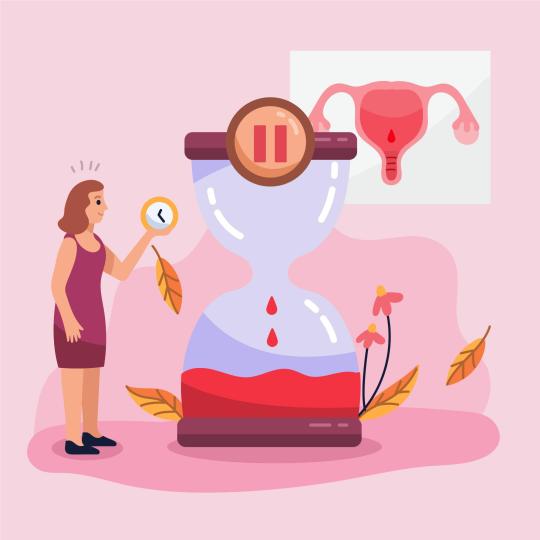
View On WordPress
#PCOD and infertility#PCOD and insulin resistance#PCOD and stress management#PCOD androgen levels#PCOD causes#PCOD complications#PCOD diet plan#PCOD dietary recommendations#PCOD exercise routine#PCOD holistic approaches#PCOD hormone therapy#PCOD lifestyle changes#PCOD natural fertility solutions#PCOD risk factors#PCOD supplements#PCOD symptoms#PCOD treatment options#PCOS androgen excess#PCOS diagnosis#PCOS emotional well-being#PCOS fertility awareness#PCOS fertility treatments#PCOS genetic factors#PCOS hair loss#PCOS hormonal imbalance#PCOS hormonal testing#PCOS hormonal therapy#PCOS lifestyle adjustments#PCOS management tips#PCOS menstrual cycle regulation
0 notes
Text
PCOD / PCOS
PCOS, or Polycystic Ovarian Syndrome, has become increasingly common among women of reproductive age in recent years. Women who have this condition may have irregular or altered menstrual cycles. The ovaries may also grow a lot of fluid-filled sacks that are incapable of releasing eggs. An endocrine disorder called PCOS/PCOD is a major contributor to infertility. Subfertility is a term used to describe a condition where a person is trying to get pregnant but is having a difficult time.
Best Ayurveda treatment for PCOD and PCOS
SYMPTOMS OF PCOS/PCOD
These are some of the typical PCOS/PCOD symptoms.
Period irregularities: Women may experience irregular menstrual cycles.
Missed Periods: Missed periods may occasionally last a long time. This may continue for several months.
Severe bleeding: This is caused by a thicker than usual uterine lining. Females can have prolonged periods of heavy bleeding.
Hair growth: The back, belly, chest, and face may all experience excessive hair growth. This ailment, also known as hirsutism, can be an annoying PCOS symptom.
Acne: Areas like the face, chest, and back are more likely to experience breakouts.
Obesity: Studies have shown that managing one’s weight can significantly lessen the symptoms of PCOS in up to 80% of females who have the condition.
Hair thinning and loss: Women with PCOS/PCOD may experience hair thinning and loss. The body’s overabundance of androgens is the cause of this.
Skin darkening: The nose, groin, under the breasts, and other places may develop dark skin pigmentation or patchy skin growth.
Headaches: A hormonal imbalance known as PCOS or PCOD can occasionally result in headaches.
Pelvic pain and fatigue: Women with PCOS may experience feelings of discomfort, such as pain in the pelvic area, along with fatigue.
REASONS BEHIND PCOS
High levels of androgen
A woman’s body contains a small amount of male hormones known as androgens. However, in PCOS, the amount of male hormones increases, which can prevent the ovaries from producing eggs during the monthly menstrual cycle. This can cause acne and excessive hair growth in women, which is one of the main symptoms of PCOS.
High levels of insulin
The insulin hormone is in charge of regulating the body’s glucose levels. PCOS is a condition in which many women have insulin resistance, which means that the glucose in the blood is not being used properly by their cells. Women are more likely than men to have a family history of Type 2 Diabetes. To avoid Type 2 Diabetes in the future, lifestyle changes are advised.Obesity and unhealthy lifestyle leads to PCOS
AYURVEDIC APPROACH TO PCOD/PCOS / Best Ayurveda treatment for PCOD and PCOS
According to the ancient texts of Ayurveda, it is referred to as “Granthi” in some cases, which refers to the development of abnormalities such as cysts, ulcers, lumps, or tumors. According to Ayurveda, PCOS is caused by imbalance of Rasa and Rakta Dhatus, as well as an imbalance in the three Doshas of the body (Vata, Pitta, and Kapha). These Rasa-Rakta Dhatus are weakened as a result of Dosha imbalance and Ama (toxins) buildup in the body. This can result in cyst formation and other PCOS symptoms.
Normally, the Vata Dosha dominates the reproductive system, and the female reproductive organs are made of “Artava Dhatu,” which nourishes the ovum. Vata Dosha is in charge of the follicle and ovum movement into the uterine fallopian tubes. The sub-dosha “Apana Vayu” is in charge of the downward flow or menstrual flow. Pitta Dosha is important for hormone production and balance in the body. The Kapha Dosha is in charge of nourishing and promoting follicle, uterine, and ovum tissue growth. As a result, a harmonious balance of the three Doshas is essential for producing healthy hormones and maintaining the health of the female reproductive system.
Best Ayurveda treatment for PCOD and PCOS
Ayurveda, as a holistic system of treatment, provides an all-encompassing treatment approach that addresses the underlying cause of this condition. This treatment can be tailored to an individual’s needs, and it is always best to consult an Ayurvedic expert before beginning any treatment or therapy. The goal of Ayurveda Treatment for PCOD is to-
Ayurvedic detoxification of the body to remove accumulated toxins
The female reproductive system should be strengthened, revitalized, and nourished.
Maintaining the body’s hormonal balance
Weight loss and insulin resistance correction
AYURVEDA DIET FOR MANAGING PCOS/PCOD SYMPTOMS:
The goal of following this Ayurvedic diet is to nourish the Aartava Dhatu in females.
Organic fruits and vegetables, such as raisins, pears, plums, dates, and figs, should be consumed by PCOS women. Fruits and berries in season should be included in the diet.
To boost the Agni (Digestive fire), avoid spicy foods, fermented foods, dairy products, buttermilk, and so on.
Consume Ragi (nachini, Eleusine coracana) grains.
Avoid taking added sugar or sugary foods, as well as artificial sweeteners.
AYURVEDA TREATMENT FOR PCOD INVOLVES-
Herbs like Ashwagandha, Turmeric, Shatavari, Varuna, Haritaki, Pippali, Bilva, Agnimantha, Punarvana, Guduchi, Chitraka, Shunthi, Dashmool, Shatapushpa, and others are very effective for balancing the tridoshas and Dhatus.
Panchakarma, ayurvedic therapies, Yoga and breathing exercises (Pranayama) . Dietary changes include increasing the consumption of fruits, vegetables, and whole grains while decreasing the consumption of saturated fats, salt, refined sugar, and refined carbs.
Varunadi Kashaya, Chitrakadi Vati, Triphala Guggulu, Punarvadi Kashaya, Shatavari Gulam, and other Ayurvedic formulations are effective.
PANCHAKARMA TREATMENT FOR PCOS/PCOD / Best Ayurveda treatment for PCOD and PCOS
Panchakarma Treatment is recommended to treat the underlying cause by removing toxins from the reproductive system and empowering the various organs such as the uterus, ovaries and Fallopian tubes. This Panchakarma Treatment also aids in the maintenance of the body’s hormonal balance.
Vamana
This is a cleansing technique used primarily to expel vitiated ‘Kapha.’ In PCOS, Vamana (therapeutic emesis or therapeutic vomiting) process helps to balance the vitiated kapha dosha.
Virechana
This therapy aids in the restoration of the vitiated Pitta Dosha. It involves cleansing the small intestine and improves Dosha elimination via the rectal route. It restores the female body’s hormonal balance.
Basti (Vastu)
This panchakarma therapy, which uses various types of herbal oils, Ghruta, milk, and other decoctions, is extremely effective in balancing the vitiated Vata Dosha. When specific oils are used for Basti, it aids in the regularisation of ovulation. So, Basti can help with infertility treatment, hormone balancing, PCOS treatment, fallopian tube blockage removal, and so on.
Uttarbasti (Vasti)
Uttarbasti (Vasti) is a highly effective treatment for gynecological conditions. In the case of PCOS, Uttarbasti aids in the dissolution of ovarian cysts, the flushing of the Aartava Vaha Srotas, the pacification of the vitiated Apana Vayu, and the increase of follicular maturity.
Fertility Massage
This is a gentle massage of the lower abdomen performed in a specific pattern to improve the natural functioning of the uterus. It also improves blood circulation in the lower pelvic region.
2 notes
·
View notes
Text
How Does Homeopathy Helps in PCOD/PCOS ?
WHAT IS PCOD/PCOS?
PCOD (Polycystic ovarian disease) or PCOS (Polycystic ovarian syndrome) is a hormonal disorder that affects approximately10- 15% of all women, which are very commonly found in day-to-day practice and increasing nowadays. It interferes with their fertility during the reproductive years. There are multiple (‘poly’) cysts (small sacs filled with fluid) in the ovaries, on either side or both sides.
WHAT CAUSES PCOD?
PCOD is caused by hormonal imbalance i.e. altered hormones.
1) Raised level of Testosterone:
A higher level of male hormone (Androgen Hormone). Normally androgen hormone is present in small amounts, but if the level increases then it leads to restricting the ovaries from releasing an egg (ovulation) during each menstrual cycle.
2) A higher level of LH Hormone: –
A higher level of Luteinizing Hormone disturbs the ovulation during the menstrual cycle.
3) Raised level of Prolactin:-
Prolactin levels of between 30 ng/mL and 200 ng/mL are considered moderately high. This level of prolactin in the blood can have many causes. Conditions related to raised levels of prolactin include pituitary disorders.
4) A higher level of Insulin: –
The excess level of insulin affects the ovaries by increasing androgen hormone thus affecting ovulation.
SYMPTOMS :
SymptomsOther signs includeIrregular menses or No mensesHair fallExcess hair on face, Chest, Stomach.DepressionHair ThinningAnxietyWeight GainDifficulty in getting pregnantAcneMood swings
HOMEOPATHY TREATMENT FOR PCOD/PCOS :
Homeopathy works on regulating hormonal imbalance, regularizing ovulation as well as maintaining a normal menstrual cycle. Homeopathy helps to treat other signs and symptoms also.
Homeopathy treatment varies from patient to patient. Homeopathic treatment is based on the extent of the problem, physiological and mental health of the patient. Homeopathic treatment is a holistic treatment. Dr. Vaseem Choudhary studies both the mental and physical condition of patients before giving any medicine. In PCOS there is careful observation of symptoms and regular follow up.
WHY HOMEO CARE CLINIC ??
Dr. Vaseem Choudhary has been treating PCOS with homeopathy treatment for many years. Dr. Vaseem Choudhary is a well-known homeopathy doctor in Pune. His treatment is safe and doesn’t have any adverse effects on the patient. Homeopathy treatment for PCOS varies from patient to patient. Patients with PCOD may experience some complications like Difficulty in getting pregnant (Infertility) and another bleeding from the uterus can be successfully treated with Homeopathy.
A complete approach at Homeo Care Clinic is harmless. So, it’s very easy to completely get rid of the side effects of conventional medication, as homeopathy treats the root cause and thereby regulate hormonal imbalance and treats PCOS.
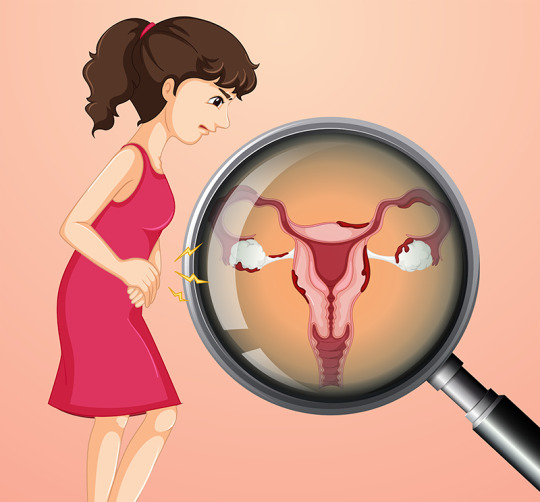
#homeopathicdoctor#pune#pcodtreatment#homeopathyworks#homeocareclinic in hadapsar#best tablet for pcod
2 notes
·
View notes
Text
treatment options available for managing PCOS and PCOD
Managing PCOS (Polycystic Ovary Syndrome) and PCOD (Polycystic Ovary Disorder) typically involves a combination of lifestyle modifications, medications, and other interventions aimed at addressing specific symptoms and underlying hormonal imbalances. Here are some treatment options commonly used for managing PCOS and PCOD:
1. Lifestyle Modifications:
Healthy Diet: Adopting a balanced diet rich in fruits, vegetables, whole grains, lean proteins, and healthy fats can help manage weight and improve insulin sensitivity. Limiting processed foods, sugary snacks, and refined carbohydrates may also be beneficial.
Regular Exercise: Engaging in regular physical activity, such as aerobic exercise, strength training, or yoga, can help improve insulin sensitivity, promote weight loss or maintenance, and reduce symptoms of PCOS and PCOD.
Weight Management: Achieving and maintaining a healthy weight can help regulate menstrual cycles, improve fertility, and reduce the risk of complications associated with PCOS and PCOD.
2. Medications:
Birth Control Pills: Oral contraceptives containing estrogen and progestin can help regulate menstrual cycles, reduce androgen levels, and improve symptoms such as acne and hirsutism.
Anti-androgen Medications: Medications such as spironolactone may be prescribed to help reduce symptoms of hirsutism, acne, and male-pattern baldness by blocking the effects of androgens.
Metformin: Metformin, a medication commonly used to treat type 2 diabetes, may be prescribed to improve insulin sensitivity and regulate menstrual cycles in women with PCOS, particularly those who have insulin resistance or are overweight.
Ovulation Induction: For women trying to conceive, medications such as clomiphene citrate or letrozole may be prescribed to induce ovulation and improve fertility.
3. Other Interventions:
Fertility Treatments: In cases of infertility, assisted reproductive technologies such as in vitro fertilization (IVF) or intrauterine insemination (IUI) may be recommended.
Surgery: In rare cases where other treatments have been unsuccessful, surgery may be considered to address specific issues such as ovarian cysts or to restore fertility.
4. Symptom-specific Treatments:
Acne Treatments: Topical or oral medications may be prescribed to help manage acne symptoms.
Hirsutism Treatment: Hair removal methods such as shaving, waxing, laser hair removal, or electrolysis may be used to manage excess hair growth.
Hair Loss Treatments: Medications or treatments such as minoxidil (Rogaine) or hair transplantation may be recommended to address hair loss or thinning.
5. Psychological Support:
Counseling or Support Groups: Dealing with the physical and emotional challenges of PCOS and PCOD can be difficult. Counseling or participating in support groups can provide emotional support and coping strategies.
It's important for women with PCOS or PCOD to work closely with their healthcare providers to develop a personalized treatment plan tailored to their specific needs and goals. Regular monitoring and follow-up appointments are essential to assess progress, adjust treatment as needed, and address any new or ongoing concerns.
0 notes
Text
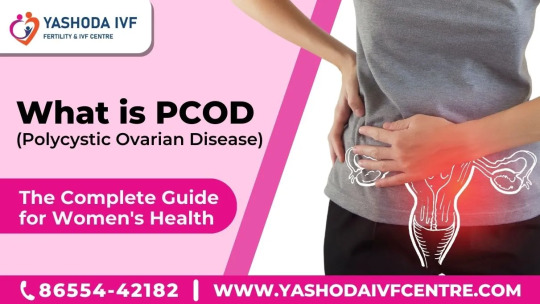
Introduction
Polycystic Ovary Disease (PCOD), is a common hormonal disorder among women of adult age. It affects the ovaries and causes irregular menstruation cycles, excessive androgen levels, and polycystic ovaries. The overall health and fertility of women can all be severely affected by PCOD. PCOD can be treated with Best PCOD treatment centre in Navi Mumbai.
Causes of PCOD
The combination of genetic and environmental factors leads to PCOD. Hormonal Imbalance, Insulin resistance, Genetic sensitivity, and lifestyle choices such as nutrition and exercise can all contribute to the development of PCOD. Women will face more complication during fertility if PCOD left untreated.
Symptoms of PCOD
The symptoms of PCOD vary from woman to woman and IVF Fertility treatments stimulate the ovaries and manipulate hormones, they may make PCOD symptoms worse.
Below the common symptoms of PCOD,
Irregular periods or no periods.
Hirsutism – Excessive hair growth on the face.
Weight gain or difficulty losing weight.
Acne and oily skin or dandruff.
Alopecia – Thinning hair or hair loss on the scalp.
Darkening of the skin, especially in skin folds.
Insulin resistance symptoms of increased hunger and fatigue.
Infertility – Difficulty getting pregnant.
Mood swings, anxiety, or depression are additional symptoms.
Diagnosis of PCOD
Diagnosing PCOD typically involves a complete medical history and physical examination, along with blood tests to measure hormone levels and ultrasound imaging to visualize the ovaries.
Complications of PCOD
Complications of PCOD includes infertility, type 2 diabetes, cardiovascular diseases, and an increased risk of endometrial cancer due to irregular menstrual cycles.
PCOD Treatment Options at Yashoda IVF
Treatment for PCOD focuses on managing symptoms and addressing underlying hormonal imbalances. Yashoda IVF Fertility and IVF Centre is a leading fertility treatment centre in Navi Mumbai offering comprehensive PCOD treatment options. Their expert team provides personalized care, including medications to regulate menstrual cycles, reduce androgen levels, lifestyle changes, and advanced procedures, ensuring effective management of PCOD for improved fertility outcomes.
Importance of Regular Monitoring and Follow-Up
Regular monitoring of hormone levels and follow-up appointments with healthcare providers are essential for managing PCOD effectively and adjusting treatment plans as needed. In order to receive regular reviews and to get treatment for PCOD, women can schedule appointments with their best infertility specialists in Navi Mumbai.
Support and Resources for Women with PCOD
To cope with the emotional and psychological aspects of PCOD, women can benefit from joining support groups, accessing educational resources, getting help from pregnancy applications and seeking counseling services to manage the condition’s psychological and emotional aspects.
Conclusion
A common hormonal disorder called PCOD which we can have serious effects on a women’s health and fertility. However, with the right treatment and support, women with PCOD can lead fulfilling lives and achieve their reproductive goals. By understanding the PCOD causes, symptoms, and treatment options, women can take control of their health and well-being.
#pcod and pcos treatment#what is pcod#pcod treatment#pcodawareness#pcod#pcod problem treatment#pcod symptoms#pcod kya hota hai
0 notes
Text
PCOD and PCOS Best Way To Cure Symptoms and Solutions

PCOD and PCOS are complex hormonal disorders affecting millions of women worldwide. While these conditions share similarities, each presents unique symptoms that impact women's health and well-being.
Menstrual Irregularities: One of the hallmark symptoms of PCOD and PCOS is irregular menstrual cycles. Women may experience missed periods, heavy bleeding, or unpredictable cycles, affecting their reproductive health.
Hormonal Imbalance: Elevated levels of androgens (male hormones) in PCOD and PCOS can lead to symptoms like acne, excessive hair growth (hirsutism), and hair loss (alopecia), affecting both appearance and self-esteem.
Ovarian Cysts: The presence of multiple small cysts on the ovaries is a common characteristic of PCOD, often causing abdominal discomfort and contributing to fertility challenges.
Weight Fluctuations: Many women with PCOD and PCOS struggle with weight management. Insulin resistance, a common feature, can lead to weight gain, especially around the abdomen, and difficulties in losing weight.
Fertility Challenges: PCOD and PCOS are leading causes of infertility due to irregular ovulation or lack thereof. Women may face challenges in conceiving naturally and often require medical intervention.
Metabolic Issues: Insulin resistance associated with these conditions increases the risk of developing metabolic disorders like type 2 diabetes and cardiovascular diseases, emphasizing the need for holistic health management.
Empowering Solutions for PCOD and PCOS While managing PCOD and PCOS involves lifestyle modifications such as a balanced diet, regular exercise, and stress management, innovative solutions like Natureleaf PCOD and PCOS capsules offer targeted support. Our carefully formulated blend addresses hormonal imbalances, supports menstrual regularity, and promotes overall well-being.
Empower yourself with knowledge and effective solutions to navigate the complexities of PCOD and PCOS. Discover the difference with Natureleaf PCOD and PCOS capsules and embrace a healthier, happier you.
https://natureleaf.co/symptoms-of-pcod-and-pcos/
#pcod and pcos
#symptoms of pcod and pcos
0 notes
Text
PCOD, or Polycystic Ovary Syndrome, is a condition that affects women's reproductive hormonal balance. It is characterized by an imbalance of sex hormones, specifically increased levels of male hormones (androgens) and decreased levels of female hormones (estrogen and progesterone). To reverse this condition naturally, book a consualtion with a good ayurvedic doctor for PCOD in Indore
#ayurvedic doctor in Kolkata#ayurvedic doctor in Rajkot#ayurvedic doctor in Ghaziabad#ayurvedic doctor in Kanpur#ayurvedic doctor in Nashik#ayurvedic doctor in Lucknow#ayurvedic doctor in Ahmedabad#ayurvedic doctor in Mumbai#ayurvedic doctor in Allahabad#ayurvedic doctor in Rishikesh#ayurvedic doctor in Ajmer#ayurvedic docto r in Ranchi#Ayurvedic doctor in Dehradun#Ayurvedic doctor in Trivandrum#Ayurvedic doctor in Shimla#ayurvedic doctor in Itanagar#Ayurvedic doctor in Shillong#ayurvedic doctor in Chennai#Ayurvedic doctor in Kochi#ayurvedic doctor in Vellore#ayurvedic doctor in Cuttack#ayurvedic doctor in Dharmanagar#ayurvedic doctor in Dibrugarh#ayurvedic doctor in Bihar#ayurvedic doctor in Amritsar#ayurvedic doctor in Ludhiana#ayurvedic doctor in Jalandhar#ayurvedic doctor in Assam#Ayurvedic doctor in Asansol#ayurvedic doctor in Jharkhand
0 notes
Text
PCOD package in GSV Diagnosticlab
PCOD: Symptoms, Management, and Treatment Options
Polycystic Ovary Syndrome (PCOS), also known as Polycystic Ovary Disorder (PCOD), is a common endocrine system disorder among women of reproductive age. It affects approximately 5–10% of this demographic worldwide. PCOD is characterized by a variety of symptoms, including irregular menstrual cycles, excess androgen levels, and polycystic ovaries. While the exact cause of PCOD remains unknown, factors such as genetics, insulin resistance, and hormonal imbalances are believed to play significant roles.
Symptoms of PCOD
PCOD presents a wide range of symptoms, which may vary in severity among individuals. Some common symptoms include:
Irregular Menstrual Cycles: Women with PCOD often experience irregular periods, with cycles longer than 35 days or fewer than eight menstrual cycles in a year.
Hirsutism: Excess hair growth, particularly on the face, chest, back, and buttocks, is a common symptom of PCOD. This is due to elevated levels of androgens, such as testosterone.
Acne: Hormonal imbalances associated with PCOD can lead to acne outbreaks, particularly along the jawline, chin, and lower cheeks.
Polycystic Ovaries: Ultrasound imaging may reveal the presence of multiple small cysts on the ovaries, though not all women with PCOD exhibit this feature.
Weight Gain: Many women with PCOD struggle with weight management, as the condition often leads to insulin resistance, making it easier to gain weight and harder to lose it.
Hair Loss: Thinning hair or male-pattern baldness can occur in women with PCOD due to elevated androgen levels.
Management and Treatment Options
While PCOD cannot be cured, its symptoms can be managed effectively through various approaches. Treatment typically focuses on alleviating specific symptoms and addressing underlying hormonal imbalances. Here are some common management and treatment options:
Lifestyle Changes: Adopting a healthy lifestyle can significantly improve PCOD symptoms. This includes regular exercise, a balanced diet rich in fruits, vegetables, and whole grains, and stress reduction techniques such as yoga or meditation.
Weight Management: Losing even a small amount of weight can help regulate menstrual cycles and improve insulin sensitivity in women with PCOD. A combination of dietary changes and regular exercise is key to successful weight management.
Medication: Hormonal birth control pills are often prescribed to regulate menstrual cycles and reduce androgen levels in women with PCOD. Other medications, such as anti-androgens or insulin-sensitizing drugs like metformin, may also be recommended depending on individual symptoms and health status.
Fertility Treatments: For women trying to conceive, fertility medications such as clomiphene citrate or assisted reproductive technologies like in vitro fertilization (IVF) may be necessary to induce ovulation and improve chances of pregnancy.
Skin and Hair Care: Dermatological treatments, including topical creams, oral medications, or procedures such as laser hair removal, can help manage acne and hirsutism associated with PCOD.
Regular Monitoring: Women with PCOD should undergo regular check-ups with their healthcare providers to monitor symptoms, assess treatment effectiveness, and screen for potential complications such as diabetes, high blood pressure, or endometrial cancer.
Conclusion
PCOD is a complex condition that requires a multidisciplinary approach to management and treatment. While there is no one-size-fits-all solution, lifestyle modifications, medications, and supportive therapies can help women with PCOD lead healthier lives and manage their symptoms effectively. Early diagnosis and intervention are crucial for minimizing the long-term health risks associated with PCOD and improving overall quality of life. If you suspect you may have PCOD, it’s essential to consult with a healthcare professional for proper evaluation and personalized treatment recommendations.
Call : +91 8939152248
#diagnostic #center in #chennai #porur #diagnostic #centre

0 notes
Text
Managing PCOS with Expert Care: Dr. Gayatri Kar Soni, the Best Gynaecologist for PCOD in South Delhi
Polycystic ovary syndrome (PCOS) poses unique challenges for women's health, requiring expert care and personalized treatment. In South Delhi, women facing PCOS turn to Dr. Gayatri Kar Soni, a renowned gynaecologist known for her expertise in managing PCOD effectively. In this informative blog, we delve into the diagnosis, treatment, and the pivotal role of Dr. Gayatri Kar Soni in empowering women to overcome PCOS.
Understanding PCOS with Dr. Gayatri Kar Soni: Best gynaecologist for PCOD in South Delhi
PCOS, also known as PCOD (Polycystic Ovary Disease), is a hormonal disorder characterized by irregular periods, hormonal imbalances, and ovarian cysts. Women with PCOS often experience symptoms such as irregular menstrual cycles, excessive hair growth, acne, and difficulty conceiving. While the exact cause of PCOS is unknown, genetic factors, insulin resistance, and hormonal imbalances are believed to contribute to its development.

Diagnosis and Assessment:
Diagnosing PCOS involves a thorough evaluation by a gynaecologist like Dr. Gayatri Kar Soni. Through a combination of medical history review, physical examination, and diagnostic tests, Dr. Gayatri accurately assesses the presence and severity of PCOS. Diagnostic tests may include blood tests to measure hormone levels, pelvic ultrasound to visualize ovarian cysts, and other assessments to evaluate insulin resistance and metabolic health.
Treatment Strategies:
Dr. Gayatri Kar Soni employs a multidisciplinary approach to treat PCOS, focusing on alleviating symptoms and addressing underlying hormonal imbalances. Her treatment strategies may include:
1. Lifestyle Modifications: Dr. Gayatri emphasizes the importance of adopting a healthy lifestyle, including regular exercise, balanced nutrition, and stress management techniques to improve symptoms and overall well-being.
2. Medications: Dr. Gayatri may prescribe medications such as birth control pills, anti-androgen medications, or insulin-sensitizing agents to regulate menstrual cycles, reduce hirsutism, and manage insulin resistance.
3. Fertility Management: For women struggling with infertility due to PCOS, Dr. Gayatri offers comprehensive fertility evaluations and treatments tailored to their unique needs. She may recommend ovulation induction, in vitro fertilization (IVF), or other assisted reproductive technologies to improve fertility outcomes.
4. Surgical Interventions: In certain cases, Dr. Gayatri may recommend surgical interventions such as ovarian drilling or laparoscopic cystectomy to manage ovarian cysts and restore fertility.
Empowering Women's Health:
As the best gynaecologist for PCOD in South Delhi, Dr. Gayatri Kar Soni goes above and beyond to empower women with PCOS. Through compassionate care, personalized treatment plans, and ongoing support, Dr. Gayatri helps her patients navigate the challenges of PCOS and achieve optimal health and fertility.
Conclusion:
PCOS is a complex condition that requires comprehensive care and expertise to manage effectively. With Dr. Gayatri Kar Soni as their trusted gynaecologist, women with PCOD in South Delhi can rest assured that they are receiving the highest quality care and support. By partnering with Dr. Gayatri, women can take control of their PCOS and embark on a journey towards improved health, fertility, and well-being.
#PCOS#PCOD#Gynaecologist#Women'sHealth#Fertility#HormonalDisorder#SouthDelhi#DrGayatriKarSoni#TreatmentStrategies#LifestyleModifications#Medications#FertilityManagement#SurgicalInterventions#Empowerment#Healthcare#Wellness#HealthAwareness#MedicalCare#HealthEducation#PatientCare
0 notes
Text
PCOD Profile Tests: Understanding Hormonal Imbalances and Health Implications
Polycystic Ovary Syndrome (PCOS) is a complex hormonal disorder affecting millions of women worldwide. One of the key diagnostic tools for identifying PCOS is the PCOD Profile Test. This test plays a crucial role in assessing various hormonal parameters and aiding in the accurate diagnosis and management of PCOS. In this article, we delve into the details of the PCOD Profile Test, its significance, and what to expect from the results.
What is PCOD Profile Test?
The PCOD Profile Test is a diagnostic test specifically designed to evaluate hormonal imbalances associated with Polycystic Ovary Syndrome (PCOS) or Polycystic Ovarian Disorder (PCOD). PCOS is characterized by irregular menstrual cycles, elevated androgen levels, and polycystic ovaries. The PCOD Profile Test helps in identifying these hormonal irregularities and provides valuable insights for diagnosis and treatment planning.
Components of PCOD Profile Test:
1. Luteinizing Hormone (LH) and Follicle Stimulating Hormone (FSH) Levels:
Luteinizing Hormone (LH) and FSH are hormones produced by the pituitary gland that play a crucial role in regulating the menstrual cycle and ovarian function. In PCOS, there is often an imbalance between LH and FSH levels, which can lead to irregular ovulation and fertility issues.
2. Testosterone Levels:
Testosterone is a male sex hormone, but it is also produced in smaller amounts in women. Elevated levels of testosterone are commonly associated with PCOS and can lead to symptoms such as hirsutism (excess hair growth), acne, and male-pattern baldness.
3. Estrogen Levels:
Estrogen is a primary female sex hormone responsible for the development and regulation of the female reproductive system. Imbalances in estrogen levels can impact menstrual cycles and fertility.
4. Progesterone Levels:
Progesterone is another essential hormone involved in regulating the menstrual cycle and maintaining pregnancy. Low progesterone levels can indicate issues with ovulation and may contribute to infertility.
5. Prolactin Levels:
Prolactin is a hormone primarily associated with lactation. Elevated prolactin levels can disrupt the normal menstrual cycle and contribute to infertility.
6. Insulin Resistance:
Insulin is a hormone that regulates blood sugar levels. Insulin resistance, a condition where the body's cells become resistant to the effects of insulin, is commonly associated with PCOS and can lead to weight gain and difficulty in managing blood sugar levels.
Significance of PCOD Profile Test:
The PCOD Profile Test provides valuable information for the accurate diagnosis of PCOS and helps in understanding the underlying hormonal imbalances contributing to the condition. Early detection and diagnosis of PCOS are crucial for timely intervention and management to prevent long-term complications such as infertility, diabetes, and heart disease.
Interpreting PCOD Profile Test Results:
Interpreting PCOD Profile Test results requires careful consideration of various hormonal parameters and their respective reference ranges. Abnormalities in hormone levels, such as elevated testosterone or insulin resistance, may indicate the presence of PCOS. However, it is essential to consult a healthcare professional for proper diagnosis and interpretation of test results.
Conclusion:
The PCOD Profile Test is a valuable diagnostic tool for evaluating hormonal imbalances associated with PCOS. By assessing key hormonal parameters such as LH, FSH, testosterone, and insulin resistance, this test aids in the accurate diagnosis and management of PCOS. Early detection and intervention are crucial for improving outcomes and reducing the risk of long-term complications associated with PCOS. If you suspect you may have PCOS or are experiencing symptoms such as irregular menstrual cycles, hirsutism, or difficulty conceiving, consult your healthcare provider for proper evaluation and diagnosis.
0 notes
Text
How You Can Reduce the Symptoms of PCOD?
PCOD (Polycystic Ovary Disorder) is an endocrine condition during which women face irregular or absent periods. When the women’s ovaries generate premature eggs, these eggs further develop themselves into cysts. It also increases the male hormone (androgen) which results in follicular cysts. Let’s explore PCOD in more detail.
What are the Symptoms of PCOD?
Common symptoms of PCOD are Irregular Menstrual Periods, Heavy Bleeding in Menstrual Cycles, Acne, Obesity, Pigmentation, Excessive growth of hair on the body, Hair Loss, and Depression. If you are facing these symptoms but want to get pregnant then you should consult with the Best infertility doctor in Lucknow to understand infertility treatment depending on your condition.
What are the Causes behind PCOD?
There are different causes behind PCOD and it could be an unhealthy diet or eating a lot of junk food because junk food carries preservatives, food colors, and other microorganisms which increases the chances of hormonal imbalance. Improper lifestyle, overdose of medications, pollution, and several supplements may impact your hormonal balance.
Excessive Insulin production in the body stimulates androgen production that leads to PCOD. Low-grade inflammation can also lead to PCOD in your body. Other than that excessive androgen levels may lead to PCOD and it can cause excessive body hair, facial breakouts, facial hair, and more.
How you can Diagnose PCOD?
This can be diagnosed with a medical history of your menstrual health. Excess hair growth, acne, weight gain, and other relevant medical conditions are also analyzed. A physical examination may also conducted to assess signs of PCOD. Whereas blood tests are performed to measure hormone levels. A pelvic ultrasound is performed to visualize the ovaries. PCOD is diagnosed with ultrasound or determining the high androgen levels.
Can PCOD Cause Another Chronic Disease?
PCOD can cause Diabetes and it can also lead to gestational diabetes. It also puts a baby and a woman's life at risk. On the other hand, diabetes and blood pressure are also related to each other. Liver disease, sleep apnea, heart disease, and infertility.
What lifestyle changes can reduce the symptoms of PCOD?
If you are facing higher than normal insulin levels due to PCOD then you should manage your blood sugar levels. Too high levels of insulin can cause your ovaries to produce more androgens like testosterone. A diet high in refined carbohydrates can cause insulin resistance and can be responsible for higher weight. A high-fiber diet helps in reducing the effect of sugar on your body. Make your exercise routine to manage your weight and avoid sugary snacks or drinks, and inflammatory foods.
What are the Treatments for PCOD?
Women with PCOD face adverse symptoms and deal with complications during pregnancy. For the treatment of this condition, you can take help of birth control pills after consulting your female infertility specialist. You can also undergo fertility treatments like IVF in the Best IVF hospital in Lucknow.
Conclusion
When the women’s ovaries generate premature eggs, these eggs further develop themselves into cysts and cause Acne, irregular periods, heavy periods, Obesity, Pigmentation, Excessive growth of hair on the body, Hair Loss, and stress. An unhealthy diet or eating a lot of junk food because junk food carries preservatives, food colors, an improper lifestyle, an overdose of medications, pollution, and several supplements may impact your hormonal balance which impact adversely PCOD.
A pelvic ultrasound is performed to visualize the ovaries. PCOD is diagnosed with ultrasound or determining the high androgen levels. If you are dealing with PCOD then you have to consult with an infertility doctor to increase your chances of successful pregnancy.
0 notes
Text
10 Signs Of PCOD To Check In Females

PCOD (Polycystic Ovarian Disease) is a disease of immature or cystic eggs released from the female reproductive system. The disease has a hormonal imbalance as the underlying cause is one of the primary causes of infertility and the painful menstrual cycle. In addition, the disease indicates several more signs & symptoms in the body. To learn about signs of PCOD, insights have been obtained from gynaecologists and experts in PCOD treatment in Mumbai. Based on the insights, this article discusses the top 10 signs of Polycystic Ovarian Disease.
Irregular Menstrual Cycle
An irregular menstrual cycle is one of the major signs of PCOD. It results in delayed or absent periods. One dealing with PCOD can experience a longer duration of the menstrual cycle.
For instance, the interval between periods is 35 days after 20 days, then 16 days. In addition, one can experience bleeding or spotting between subsequent periods.
Infertility
Approximately two out of ten ladies are having trouble conceiving because of the underlying PCOD. PCOD is one of the main reasons for female infertility. High amounts of androgen hormones, such as testosterone, are often associated with PCOD. The ovaries cannot release an egg (ovulation) when there is excess testosterone. PCOD may be the reason for infertility if a woman has been attempting to conceive for 12 months (or six months if she is older than 35) but failing to do so. For those with PCOD, the combination of irregular ovulation and hormone imbalances can make conception challenging.
Hirsutism
An additional growth of coarse or black hair on the face or body is called Hirsutism. The excessive growth of unwanted hair indicates POCD is underlying. The reason for Hirsutism is that the male sex androgen hormone dominates the female body. While most women don’t create much androgen, those who have PCOD frequently do. PCOD-related hirsutism might appear on the upper lip, cheeks, chin, inner thighs, upper arms, lower tummy, breasts, and lower back. The upper back, upper abdomen, and chest may be affected less frequently.
Acne & Pimple
Elevated testosterone levels can also cause acne and greasy skin. Usually the Face, Back, and Neck, can be affected by oily skin. Acne and oily skin are related and can be challenging to deal with. The good news is that medication, dietary modifications, supplements, and lifestyle adjustments can all be helpful.
Weight Gain
About 38–88% of women who have PCOD also struggle with weight gain. For women, gaining more weight can be emotionally and physically taxing. It may be more challenging to lose weight if you have PCOD, and being overweight can exacerbate PCOD symptoms. It will raise your chance of developing further health issues.
Dark Patches on the Skin
Dark, velvety skin patches that appear on your neck, groin, or under your arm, also known as Acanthosis Nigricans. It is also a sign of PCOD. Those with darker skin have PCOD more frequently. If the female has PCOD, it may be possible to determine whether they are more likely to develop type 2 diabetes. Inconsistent insulin levels and a higher BMI could cause Acanthosis Nigricans.
Ovulatory Dysfunction
Ovulatory dysfunction is an inability to release a healthy egg on time. Ideally, a healthy woman has 4 days (12th- 16th of the menstrual cycle) as the peak time to get pregnant. But, irregular menstrual cycles and cystic or immature eggs caused by PCOD make ovulatory dysfunctioning. As a result, ovulation window gets changed and cystic or immature egg’s leads to the female infertility,
Mood Swing
An underlying issue of PCOD might impact a person’s confidence and mood. This is particularly true if you exhibit acne, weight gain, or excessive hair growth. PCOD can also bring on severe mental health problems like anxiety, sadness, and eating disorders. It can be a severely disabling illness, both mentally and physically. It’s crucial to discuss any mood-related issues with your doctor. This illness may result in sleepless nights.
Insulin Resistance
Females with PCOD frequently have insulin resistance. It means cells in the body become more resistant to insulin. Due to the PCOD, the body produces more insulin. Excessive production of insulin leads to issues of weight gain and an overproduction of testosterone by the ovaries, which exacerbates symptoms.
Pelvic Pain
Another uncommon sign of PCOD is pelvic pain. Polycystic Ovarian Cysts can result from PCOD and can hurt the pelvic region. A steady ache or a sudden jolt in the lower abdomen may be the sensation associated with pelvic pain caused by ovarian cysts. The discomfort could be constant or sporadic. Ovulation, endometriosis, and uterine fibroids are just a few of the several conditions that can cause pelvic pain. For an accurate assessment of any pelvic pain, consultation with the gynaecologist is advised.
Diagnosis of PCOD and Treatments
A combination of physical examination, blood tests, imaging scans, and medical history assessment is usually used to diagnose PCOD. Below is a summary of popular PCOD diagnostic process:
Medical History and Physical Examination: During the examination, your doctor will inquire about your weight fluctuations, hirsutism, irregular periods, and other symptoms. A physical exam will also be performed to look for outward indicators of insulin resistance, such as skin tags, acne, and excessive hair growth.
Blood Testing: Testosterone, insulin, luteinizing hormone (LH), follicle-stimulating hormone (FSH), and testosterone levels can all be determined by blood testing. The LH-to-FSH ratio is frequently high in PCOD, as are elevated levels of LH and testosterone. Blood tests, including those that measure insulin and fasting glucose, can also determine insulin resistance.
Ultrasound: To see the ovaries and see if there are any numerous little cysts (follicles) on them, a transvaginal ultrasound may be carried out. Ovarian cysts are generally associated with PCOD, although they are not a guarantee of the illness; in fact, not all PCOD-affected women will have them.
PCOD Treatments
With the help of lifestyle change and the proper medical guidance, a female can live a healthy life and conceive successfully. Regarding this, PCOD treatments include-
Physical Exercise
Rich food diet
Hormone Balancing Medications
Fertility Treatment.
Conclusion
PCOD is a disease of the female ovaries. It leads to the cystic and immature release of eggs for the ovaries. It is one of the major causes of infertility, unwanted facial hair growth, weight gain and several more health issues. Along with it shows signs and symptoms, PCOD has tests and effective treatments. With the help of blood tests and ultrasound, one can learn about the underlying Polycystic Ovarian Disease.
To get the proper PCOD treatment, one can visit the nearest gynaecologist or Dr. Chaitali Mahajan Trivedi. She is a leading gynaecologist in Mumbai and offers treatment for PCOD and infertility issues caused by the condition. You can visit Nanavati Super Speciality Hospital to consult with the doctor and book an appointment with Dr. Chaitali Mahajan Trivedi today.
0 notes
Text
PCOD And PCOS: Decoding The Difference Between PCOS And PCOD - Know Your Body, Own Your Health!
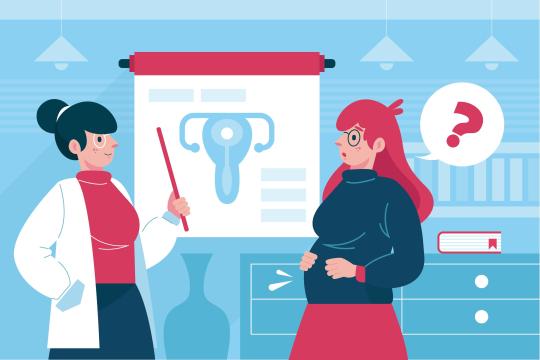
Polycystic ovary syndrome (PCOS) and polycystic ovary disorder (PCOD) are two common hormonal disorders that affect women's reproductive health. Despite their similar names, they are distinct conditions with unique characteristics and implications. It's crucial to understand the differences between PCOD and PCOS to ensure accurate diagnosis and appropriate treatment. In this comprehensive guide, we'll delve into the nuances of both conditions and shed light on their distinct features.
What is PCOD?
Polycystic ovary disorder (PCOD), also known as polycystic ovarian syndrome (PCOS), is a hormonal disorder characterised by enlarged ovaries containing numerous small cysts. These cysts are fluid-filled sacs that develop in the ovaries due to hormonal imbalances, particularly elevated levels of androgens (male hormones) such as testosterone. PCOD is often associated with irregular menstrual cycles, infertility, and metabolic disturbances such as insulin resistance.
Key Features of PCOD:
Irregular Menstrual Cycles: Women with PCOD may experience irregular periods or may skip periods altogether due to irregular ovulation.
Polycystic Ovaries: On ultrasound examination, the ovaries of women with PCOD may appear enlarged and contain multiple small follicles, giving them a characteristic "polycystic" appearance.
Hormonal Imbalances: PCOD is associated with hormonal imbalances, including elevated levels of androgens such as testosterone and luteinizing hormone (LH) and decreased levels of follicle-stimulating hormone (FSH).
Insulin Resistance: Many women with PCOD also exhibit insulin resistance, which can lead to high insulin levels in the blood and an increased risk of type 2 diabetes.
Symptoms: Common symptoms of PCOD include hirsutism (excessive hair growth), acne, weight gain, and infertility.
View more ......
0 notes
Text
potential complications associated with PCOS and PCOD
PCOS (Polycystic Ovary Syndrome) and PCOD (Polycystic Ovary Disorder) are conditions that can lead to various complications, affecting both physical and reproductive health. Here are some potential complications associated with PCOS and PCOD:
Infertility: One of the most significant complications of PCOS and PCOD is infertility. Irregular ovulation or lack of ovulation can make it difficult for women to conceive.
Increased Risk of Type 2 Diabetes: Insulin resistance, a common feature of PCOS/PCOD, can lead to high blood sugar levels and an increased risk of developing type 2 diabetes.
Gestational Diabetes: Women with PCOS/PCOD have a higher risk of developing gestational diabetes during pregnancy, which can lead to complications for both the mother and baby if not managed properly.
High Blood Pressure (Hypertension) and Heart Disease: PCOS/PCOD is associated with an increased risk of developing high blood pressure and heart disease, especially in women who are overweight or obese.
Endometrial Cancer: Irregular or absent menstrual cycles can lead to the buildup of the uterine lining (endometrium), increasing the risk of endometrial cancer in women with PCOS/PCOD.
Obesity and Metabolic Syndrome: Many women with PCOS/PCOD struggle with weight management and are at an increased risk of developing obesity and metabolic syndrome, which is a cluster of conditions including high blood pressure, high blood sugar, excess body fat around the waist, and abnormal cholesterol or triglyceride levels.
Sleep Apnea: PCOS/PCOD is associated with an increased risk of sleep apnea, a sleep disorder characterized by pauses in breathing during sleep.
Depression and Anxiety: Hormonal imbalances and the challenges associated with managing symptoms of PCOS/PCOD can contribute to depression and anxiety in some women.
Hirsutism and Acne: Excess levels of androgens (male hormones) in women with PCOS/PCOD can lead to symptoms such as hirsutism (excessive hair growth on the face, chest, and back) and acne.
Complications during Pregnancy: Women with PCOS/PCOD have an increased risk of pregnancy complications, including miscarriage, preeclampsia (high blood pressure during pregnancy), and premature birth.
It's essential for women with PCOS/PCOD to work closely with their healthcare providers to manage their symptoms and reduce their risk of complications. Lifestyle modifications, such as maintaining a healthy weight, eating a balanced diet, exercising regularly, and managing stress, can help improve symptoms and reduce the risk of associated complications. Additionally, medication may be prescribed to help regulate menstrual cycles, lower insulin levels, and manage other symptoms. Regular monitoring and screening for related conditions, such as diabetes and heart disease, are also important for overall health and well-being.
0 notes
Text
PCOD and PCOSSymptoms, Causes & Treatment at Yashoda IVF
For women with Polycystic ovary syndrome (PCOS) and polycystic ovary disorder (PCOD) are common disorders that affect their reproductive health. These problems commonly impact women’s fertility and mental well-being. Here in this blog, we explore the symptoms of PCOD, Cause of PCOD and PCOS, differences between PCOD and PCOS, and explore the best infertility treatment of these common hormonal disorders available, including the infertility specialists of IVF Treatment and top gynaecologists in Navi Mumbai from Yashoda IVF Fertility and IVF Centre.
What is PCOD ? and What is PCOS ?
Polycystic ovary disorder (PCOD) includes symptoms of irregular menstrual cycles, and hormonal imbalances, multiple cysts on the ovaries. PCOS, is a more complex hormonal disorder that includes symptoms of excess androgen levels, irregular periods and cysts on the ovaries. Both the conditions result in Fertility issues and other health complications for women if left untreated.
Symptoms of PCOD and PCOS:
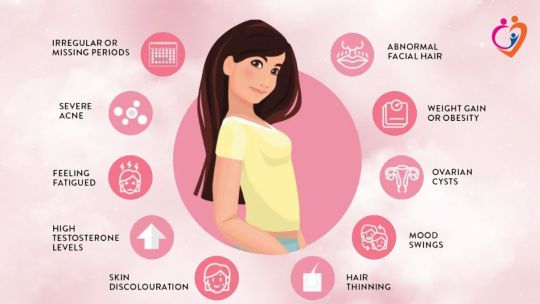
Irregular periods or no periods.
Excessive hair growth on the face, chest, or back (hirsutism).
Weight gain or difficulty losing weight.
Acne and oily skin or dandruff.
Thinning hair or hair loss on the scalp (alopecia).
Darkening of the skin, especially in skin folds.
Insulin resistance symptoms of increased hunger and fatigue.
Difficulty getting pregnant (infertility).
Mood swings, anxiety, or depression.
Some women may experience very minor issues, while others find that they significantly complicate daily lives.
Causes of PCOD and PCOS:
The cause of PCOD and PCOS involves Hormonal Imbalance, particularly elevated levels of androgens (male hormones) such as testosterone.
Insulin Resistance: Insulin resistance, a condition where the body's cells don't respond effectively to insulin, is commonly associated with PCOD and PCOS. This can lead to increased insulin levels and higher androgen production by the ovaries.
Genetics: It plays a vital role in development of PCOD and PCOS. Women with a family history of these conditions are at high risk.
Lifestyle Factors: women who are following poor diet, lack of exercise, and obesity can lead to hormonal imbalances and insulin resistance, increasing high risk of PCOD and PCOS.
Differences Between PCOD and PCOS:
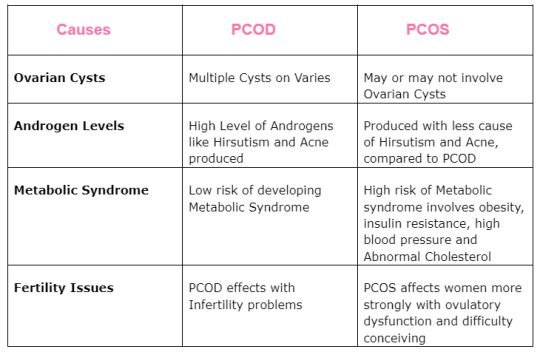
PCOD and PCOS Treatment at Yashoda IVF:
1. Lifestyle Changes: Adopting a healthy lifestyle, including a balanced diet, regular exercise, stress management, and adequate sleep, can help improve symptoms and regulate menstrual cycles in women with PCOD and PCOS.
2. Medications: Hormonal contraceptives, anti-androgen medications, and insulin-sensitizing drugs may be prescribed to regulate menstrual cycles, that reduces androgen levels, and improve insulin sensitivity.
3. Fertility Treatments: For women struggling with infertility due to PCOD or PCOS, fertility treatments such as in vitro fertilization (IVF) may be recommended. IVF treatment involves retrieving eggs from the ovaries, fertilizing them with sperm in a laboratory, and transferring the embryos into the uterus.
4. Surgical Interventions: In cases where ovarian cysts are large or causing severe symptoms, surgical removal of the cysts (ovarian drilling) or in extreme cases, removal of the ovaries (oophorectomy) may be necessary.
The PCOD/PCOS-Friendly Diet
Focusing on whole foods that are minimally processed, as well as plenty of fruits and vegetables, can help individuals manage their symptoms and feel better.
Getting Pregnant with PCOD
Fertility can be a significant concern for women with PCOD. Understanding the complexities and treatment options can lead to more informed decisions and better outcomes.
Fertility Treatments and PCOD
From lifestyle changes to medical interventions, the spectrum of treatments available for women with PCOD who aspire to conceive is as broad as it is promising.
PCOD and PCOS Treatment at Yashoda IVF
At Yashoda IVF Fertility and IVF Centre, concentrate on providing individualized treatment that address the unique requirements of every patient. They are expert in providing best Infertility Treatment in Navi Mumbai which they identify each case thoroughly and provide PCOD and PCOS treatment, since every person experiences differently. This approach includes medication, dietary changes, lifestyle modifications, and if required surgical procedures.
Technology role in Treatment at Yashoda IVF
At Yashoda IVF Fertility centre, their PCOD and PCOS treatment approach is the utilization of cutting-edge technology instruments and techniques. This dedication to using technology to its fullest potential not only improves treatment outcomes but also greatly elevates the patient experience, resulting in a more comfortable and manageable path to health and fertility.
Conclusion
PCOD and PCOS are complex hormonal disorders that should be treated by analysing the individual issues thoroughly and providing Infertility treatment for each patient. By understanding the symptoms, causes, and differences between these conditions, and seeking the expertise of qualified best Infertility specialists in Navi Mumbai.
#pcod treatment#what is pcod#pcos#ivf centre in navi mumbai#best ivf centre in navi mumbai#ivf treatment in navi mumbai#ivf clinic in navi mumbai#fertilitycare#ivf clinic in vashi#fertility#in vitro fertilization#ivf centre#pcosjourney#pcossupport#PCOD and PCOS treatment#PCOD and PCOS symptoms#PCOD symptoms#PCOS symptoms#PCOD treatment#PCOS treatment#fertilitycenter
0 notes
Text
Polycystic Ovarian Disease (PCOD): Causes, Symptoms, And Treatment
What is Polycystic Ovarian Disease?
Polycystic Ovarian Disease (PCOD), also known as Polycystic Ovary Syndrome (PCOS) is a very common condition affecting 5% to 10% of women in the age group 12–45 years. It is a problem in which a woman’s hormones are out of balance. It can cause problems with menstrual periods and make it difficult for her to conceive. The principal features include no ovulation, irregular periods, acne, and hirsutism. If not treated it can cause insulin-resistant diabetes, obesity, and high cholesterol leading to heart disease.
What causes Polycystic Ovarian Disease (PCOD)?
Normally, the ovaries make female sex hormones and a tiny amount of male sex hormones (androgens). This help regulate the normal development of eggs in the ovaries during each menstrual cycle.
Polycystic ovary syndrome is related to an imbalance in these sex hormones. In PCOS, they start making slightly more androgens. This causes patients to stop ovulating, get pimples and grow extra facial and body hair.
Follicles are sacs within the ovaries that contain eggs. Normally, one or more eggs are released during each menstrual cycle. This is called ovulation.
In polycystic ovary syndrome, the eggs in these follicles do not mature and are not released from the ovaries. Instead, they can form very small cysts in the ovary, hence the name polycystic ovaries.
PCOS seems to run in families, so the chance of having it is higher if other women in the family have PCOS, irregular periods, or diabetes.
To get the best treatment, visit the gynecology hospital in Ghaziabad.
Common symptoms of PCOD/PCOS include:
Acne
Weight gain and trouble losing weight.
Extra hair on the face and body. Often women get thicker, darker facial hair and more hair on the chest, belly, and back.
Thinning hair on the scalp.
Irregular periods. Often women with PCOS have fewer than nine periods a year. Some women have no periods others have very heavy bleeding
Fertility problems. Many women who have PCOS have trouble getting pregnant (infertility).
Depression
Investigations like blood sugar estimation, thyroid hormone tests, and ultrasound of the abdomen and pelvis are done. Sometimes serum androgens, luteinising hormone, and other hormone estimations may be ordered.
Treatment
The medical treatment of PCOD/PCOS focuses on managing your individual concerns, such as infertility, hirsutism, acne or obesity.
Lowering of blood glucose levels
Restoration of fertility
Treatment of hirsutism or acne
Restoration of regular menstruation, and prevention of endometrial hyperplasia and endometrial cancer
Losing weight (which can be difficult) has been shown to help with diabetes, high blood pressure, and high cholesterol. Even a weight loss of 5% of total body weight has been shown to help with the imbalance of hormones and also with infertility.
Medications used to treat the abnormal hormones and menstrual cycles of polycystic ovary syndrome include:
Birth control pills or progesterone pills help to make menstrual cycles more regular.
Metformin, a medication that increases the body's sensitivity to insulin, can improve the symptoms of PCOS and sometimes will cause the menstrual cycles to normalize. For some women, it can also help with weight loss.
LH-releasing hormone (LHRH) analogues.
Treatment with clomiphene citrate causes the egg to mature and be released. Sometimes women need this or other fertility drugs to get pregnant.
Medications or other treatments for abnormal hair growth include:
Birth control pills. It may take several months to begin noticing a difference.
Anti-androgen medications, such as spironolactone and flutamide may be tried if birth control pills do not work.
Eflornithine cream may slow the growth of unwanted facial hair in women.
Hair removal using laser and nonlaser light sources damages individual hair follicles so they do not grow back. This can be expensive and multiple treatments are needed. Laser removal can be combined with other medicines and hormones.
Pelvic laparoscopy to remove a section of the ovary or drill holes in the ovaries is sometimes done to treat the absence of ovulation (anovulation) and infertility. The effects are temporary.
Expectations (prognosis)
Women who have this condition can get pregnant with the right surgical or medical treatments. Pregnancies are usually normal.
PCOD/PCOS Complications
Increased risk of endometrial cancer.
Infertility (early treatment of polycystic ovary disease can help prevent infertility or increase the chance of having a healthy pregnancy).
Obesity-related (BMI over 30 and a waist circumference greater than 35) conditions, such as high blood pressure, heart problems, and diabetes.
Possible increased risk of breast cancer.
Get a consultation with the best gynecologists in Ghaziabad to know more about PCOD.
0 notes